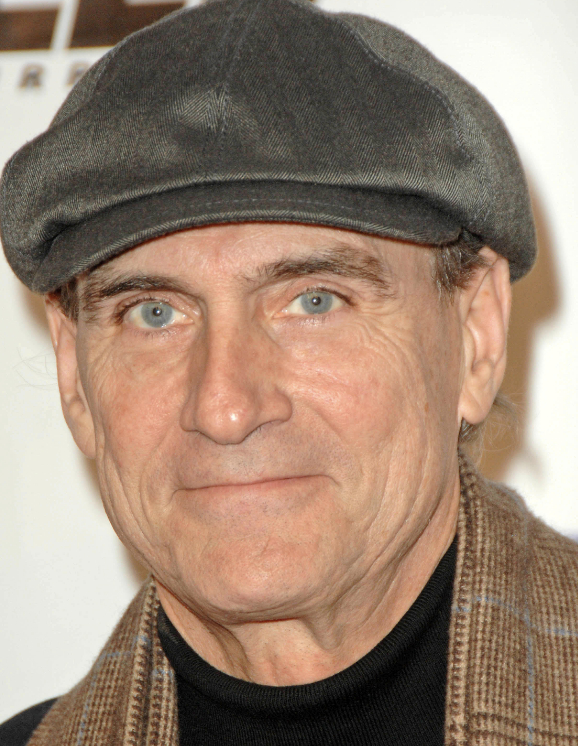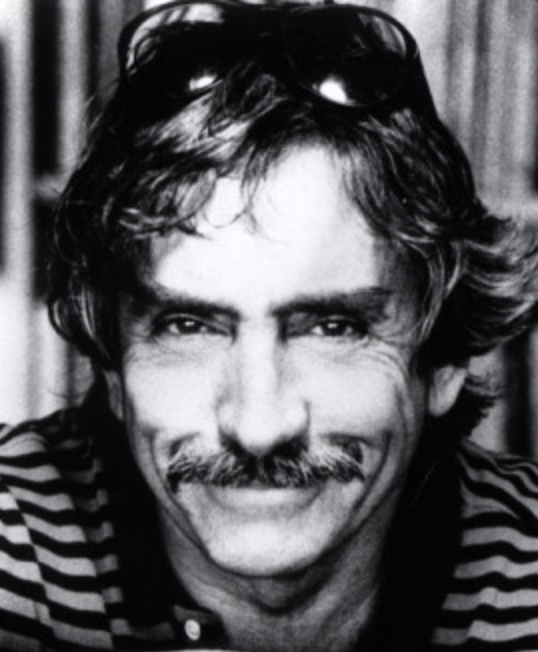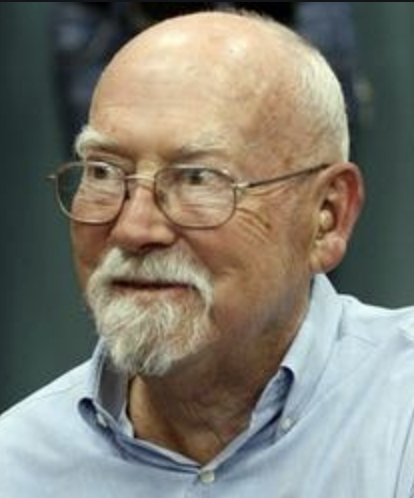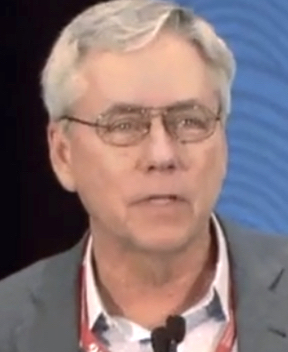March 12
James Taylor

On this date in 1948, musician James Vernon Taylor was born in Boston, then grew up in Chapel Hill, N.C. He first took up the guitar while at Milton Academy, a boarding school in Massachusetts. He began writing songs during an early bout with depression in 1965 and became addicted to heroin, a habit he had kicked by the mid-1970s.
Taylor’s breakthrough album was Sweet Baby James (1970) and his best-known song was “Fire and Rain,” which stayed in the Top 10 from 1970-72. “You’ve Got a Friend” (1971), written by Carole King, was his first No. 1 hit. Rolling Stone magazine has called Taylor “the archetypal ‘sensitive’ singer/songwriter of the seventies” and The New York Times dubbed him “a Troubadour from the 70s.”
Every album he released from 1977 to 2007 sold over 1 million copies. He enjoyed a resurgence during the late 1990s and 2000s, when he recorded some of his most-awarded work, including “Hourglass,” “October Road” and “Covers.” He achieved his first No. 1 album in the U.S. in 2015 with “Before This World,” his 17th studio recording. “Hourglass” (1997), contains “spirituals for agnostics,” Taylor has said. The song “Up From Your Life” begins “God’s not at home.”
Taylor has done benefits for numerous charitable causes. He wrote some of the songs for the Broadway musical “Working” based on the work of Studs Terkel, and appeared as a truck driver in the PBS version of the play.
He was married to singer Carly Simon from 1972-83 and had a daughter, Sally, and a son, Ben, with her. He married Kathryn Walker in 1985 and divorced in 1995. In 2001 he married Caroline “Kim” Smedvig, director of marketing for the Boston Symphony. That same year they had twin sons, Henry and Rufus, born via surrogate.
“My father was an atheist, as distinguished from an agnostic. He felt that anyone who suggested that they represented God was to be deeply distrusted, that anyone who opened his mouth saying that he represented anything divine was a charlatan,” Taylor told music journalist Paul Zollo in a 2009 interview. Asked if he shared that feeling, Taylor said, “Sure, that’s what I was given as a set of beliefs from my father.”
PHOTO: Taylor at Carnegie Hall in 2011; Joella Marano photo under CC 2.0.
"I think God is the name of a question. God is not an existing thing. That’s what we’ve named an unknown."
ROLLING STONE: Does not having faith in a personal god make it harder to stick with a 12-step recovery program?
TAYLOR: Twelve-step programs say an interesting thing; Either you have a god, or you are God and you don’t want the job.— Bluerailroad interview (July 5, 2009); Rolling Stone interview (June 24, 1997)
Edward Albee

On this date in 1928, playwright Edward Franklin Albee III was born to Louise Harvey in the District of Columbia and grew up in Larchmont, N.Y., after being given up for adoption when he was 18 days old. His adoptive family was prosperous and owned a chain of theaters. A rebellious teen growing up in a conservative household, Albee was expelled from Trinity College in Hartford, Conn., because he failed to attend chapel and classes.
At 20 he moved to New York’s Greenwich Village, where he took odd jobs, such as being a messenger for Western Union, while writing. His first breakthrough play “The Zoo Story” (1959), belonging to the theater of the absurd, was originally produced in Germany.
Albee was awarded three Pulitzer Prizes for his plays “A Delicate Balance” (1966), “Seascape” (1975) and “Three Tall Women” (1994). He won the 1963 Tony Award for Best Play for “Who’s Afraid of Virginia Woolf?” It opened on Broadway with Uta Hagen and Arthur Hill as Martha and George and was adapted for the 1966 film starring Elizabeth Taylor and Richard Burton. He won a second Best Play Tony in 2002 for “The Goat, or Who Is Sylvia?”
He told Warren Allen Smith, editor of Who’s Who in Hell (2000), that he was a “nominal Quaker” because he admired their pacifism, and that while he thinks Jesus lived and is interested in his outlook, he did not accept “all that divinity stuff.” (Dec. 10, 1996)
In his 2011 acceptance speech for the Lambda Literary Foundation’s Pioneer Award for Lifetime Achievement, Albee said: “A writer who happens to be gay or lesbian must be able to transcend self. I am not a gay writer. I am a writer who happens to be gay.” His longtime partner, sculptor Jonathan Thomas, died in 2005 from bladder cancer. Albee also had relationships with composer William Flanagan and playwright Terrence McNally during the 1950s and early 1960s. Albee died at his home at age 88 in Montauk, N.Y. (D. 2016)
“The result is a touching, humorous, and honest tribute to a woman who was a pioneer for free-thinking females everywhere, but also stood strongly on her own as one of the 20th century’s greatest artistic minds.”
— From a description of Albee's 2001 play "Occupant" about artist Louise Nevelson (Berkshire On Stage, Oct. 1, 2018)
Harry Harrison

On this date in 1925, author and editor Harry Max Harrison (né Henry Maxwell Dempsey) was born in Stamford, Conn. His mother was a Russian born in Latvia and his father, of Irish descent, was born in New York state. Growing up in New York City, Harrison spent a lot of time alone, excelling in science at school and devouring science fiction books.
At age 13 he was one of the founding members of the Queens chapter of the Science Fiction League. After high school he joined the U.S. Army Air Corps, where high marks on technical aptitude tests secured him training in computers. Discharged in 1946, Harrison enrolled in the Cartoonists and Illustrators School in New York City, where he met many artists who gained prominence in the comic book industry.
Harrison became an exemplary comic book artist himself, designing hundreds of pages of comics and covers over the next few years, including “Worlds Beyond: A Magazine of Science Fiction Fantasy.”
As the “Red Scare” in the 1950s advanced, comic books became a political target, blamed for “corrupting America’s youth.” The comic book boom came to an end, forcing artists like Harrison to take up other trades. Harrison stuck with his childhood love and started writing science fiction. He was one of the main writers of the Flash Gordon comic strip in the 1950s and 1960s. One of his novels, Make Room! Make Room! (1966), was the basis of the sci-fi classic film “Soylent Green” (1973).
Some of his other prominent books (there are dozens) include The Stainless Steel Rat (1961), Bill, the Galactic Hero (1965), The Technicolor Time Machine (1967) and A Rebel in Time (1983). An entry titled “Atheist” linked to his website details how Harrison’s short story “The Streets of Ashkelon” (1962) remained unpublished for over a year because the hero was an atheist who tried to protect the inhabitants of an alien world from the influence of a Christian missionary: “The story was regarded as being too offensive for a Christian readership.”
He married Evelyn Harrison in 1950, divorcing in 1951. He married dress designer and ballet dancer Joan Merkler in 1954. They had two children, Todd and Moira, and were married until her death in 2002. He died in 2012 at age 87 in his apartment in Brighton, England. (D. 2012)
"We atheists lead happy lives, never concerned with the-dying-and-burn forever-in-hell nonsense. We know better. We enjoy happiness with our friends and neighbors and ignore all the greed and rituals that pay the parasite priests. Let them wallow in their medieval superstition while we enjoy all the wonders of our God-free universe."
— Henry Harrison News blog, "They're Afraid of Us!" (April 23, 2011)
Carl Hiaasen

On this date in 1953, author and journalist Carl Hiaasen was born in Fort Lauderdale, Fla., the first of four children born to Patricia (Moran) and Kermit Odel Hiaasen, an attorney of Norwegian descent. His mother, with Irish roots, was a teacher. He grew up in nearby Plantation.
Using a typewriter his parents bought him for Christmas when he was 6, he started writing stories while getting hooked on the Hardy Boys books, soon supplanted by his favorites John Steinbeck, J.D. Salinger and Joseph Heller. He wrote humor columns after enrolling at Emory University in Atlanta and then transferring to the University of Florida in Gainesville, where he graduated in journalism in 1974.
He worked for two years as a reporter at TODAY in Cocoa before moving to the Miami Herald in 1976 as an investigative reporter, then as a columnist from 1985 until retirement in 2021. “Powder Burn” (1981) was the first of his 18 adult novels. “Squeeze Me” (2020) was the last as of this writing in 2024. Seven other novels are geared to “middle grade” readers. He has written three nonfiction works. His works have been translated in 34 languages.
“Hiaasen has turned his righteous indignation into humorous satire in which heroes and villains alike exhibit farcical quirks and an attachment to creative forms of violence. The good guys are often eco-terrorists seeking to preserve the ever-dwindling plots of undeveloped land; the bad guys wallow in greed as they pursue the rape of the state.” (Encyclopedia.com)
Hiaasen “has made a persuasive case that the most barbaric, ignorant and just plain awful people living in this country today reside, nay flourish, in the state of Florida,” wrote reviewer Joe Queenan. (New York Times, Jan. 9, 2000)
“Florida is a fertile setting for fiction because real life here is so bizarre,” Hiaasen said in an interview. “The kind of stories I write couldn’t take place anywhere else.” Asked what people might be surprised to learn about him, he said, “Readers always seem amused to learn that my uncle was a priest and my aunt was a nun. Clearly I took my life in a different direction … My job isn’t to preach. If you create a good story with memorable characters, readers will get on board. Your main duty as a writer is to keep them turning the pages. The characters carry their own messages.” (Penguin Random House interview, Sept. 15, 2023)
His only brother Rob was shot to death in 2018 along with four others at a newspaper in Annapolis, Md., by a man who had long-running disputes with the paper. Hiaasen had dedicated his 1991 novel “Native Tongue” to his brother.
He is clearly a political liberal but that doesn’t stop him from blunt criticism of the left or the right or from the willful ignorance of some aspects of religion. “Eons ago, when man lived in caves, dumb moves were often fatal moves. The quick and the smart survived, the slow and the dimwitted didn’t. If one member of the tribe ate a berry and died, the others henceforth avoided those darn berries,” he wrote in a column titled “Modern world puts evolution into reverse.” (Miami Herald, July 6, 1995)
“Over time, humans advanced and grew sturdier. Not anymore,” he continued. “Now we’ve got seat belts, air bags, antibiotics and stomach pumps to save fools from their own mistakes. That’s all right. Caring for others is one of the nobler traits of our species. The result, ironically, is that the genetic future of mankind isn’t so rosy. Stragglers once culled from the herd now (in the absence of saber-toothed tigers) operate motor vehicles, watch Jerry Springer, cavort in pollution and even breed. Darwin would be truly worried. The evolutionary gap between the bacteria and us is closing.” (Ibid.)
In a column titled “God: Go ahead, make my day,” he wrote about Florida U.S. Rep. Matt Gaetz’s claim that gun rights are “granted not by government but by God.” Hiaasen countered, “Firearms didn’t exist when the Bible was written, and there’s no reference in either testament to “popping a cap in thy heathen backside. … Anytime a politician starts throwing God’s name around, people get suspicious.” (St. Augustine Record, Oct. 24, 2015)
He married Constance Lyford, his high school sweetheart and later a registered nurse and attorney, in 1970. They had a son Scott before divorcing in 1996. He married Fenia Clizer in 1999. They had a son Quinn before divorcing in 2019. In 2020 he married Kaitlyn Fox, 36 years his junior, whose background is in health care information technology.
Hiaasen’s 2013 novel “Bad Monkey” has been adapted into an Apple TV+ series starring Vince Vaughn that started airing in August 2024. His 1993 novel “Strip Tease” was adapted for the 1996 feature film starring Demi Moore and Burt Reynolds. Panned by critics and winning the Worst Picture Golden Raspberry, it earned Moore $12.5 million, making her the highest-paid film actress up to that time.
PHOTO: Hiaasen at the 2016 National Book Festival; Library of Congress photo under CC 1.0.
“For me, that’s church.”
— Hiaasen rhapsodizing about Florida's natural beauty, "CBS Sunday Morning" (Aug. 18, 2024)
